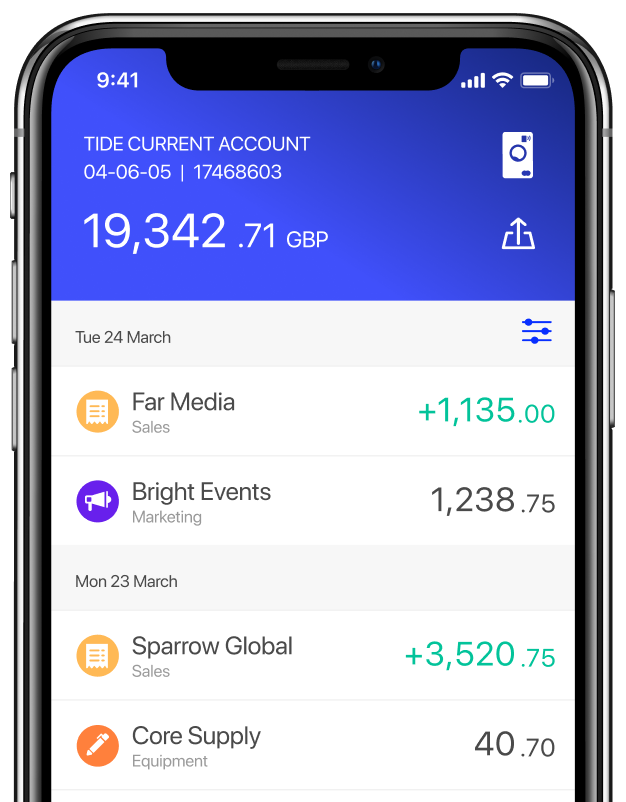
How to choose an accountant for your small business

If you’ve taken the leap towards an entrepreneurial lifestyle and established your own company, you may have thought about hiring an accountant. Whether you employ someone full-time, or use the services of an existing accountancy practice, choosing your accountant is an important decision for your business.
The right accountant should ensure that you are compliant with Companies House and HMRC, and help you to avoid unwanted fines, penalties, and tax bills in order to help your business grow. However, some businesses grow just fine without an accountant to support, advise and file accounts, so it’s up to you to decide on the best course of action for your business.
So, if you do decide to get an accountant, how do you choose one that will add the most value to your practice, and where do you begin your search? Here are a few steps to help make things easier.
Step 1: Identify what your business needs
Ask yourself exactly what you need your accountant for, question whether you require them simply to produce your annual accounts, or if you’d prefer that they did everything from payroll to bookkeeping and VAT returns. This is specific to your business circumstances and how much time, energy and money you deem necessary to commit.
Step 2: Do your research
According to a report by Oxford Economics, there were almost 600,000 people working in accounting roles in 2016 – what does this mean for you? Well, the good news is that you can afford to be picky! The bad news is that with so many to choose from, you’ll need to research thoroughly.
Your best resource is to seek recommendations from your professional network, otherwise a valuable place to start is by researching online reviews. Once you’ve created a shortlist of potential accountants, the right accountant will depend on a few factors. Here’s what to consider before making your final decision:
Ensure that they are aligned with your business:
Consider the type of practice that the accountant is running, and whether this will be a good match for your company. For example, if you and your company are tech-forward, you may wish to seek out a similarly tech-driven accountant – such as one who uses cloud accounting software (for example Xero or FreeAgent), or is happy to conduct meetings over video call when needed. On the other hand, if you favour putting pen to paper and meeting face-to-face, a traditional accountant may be more suitable.
Will the accountant be hands-on, or take a back seat? Legally speaking, your accountant isn’t responsible for your accounts being filed on time, but a hands-on accountant would gather the required information in advance of these deadlines. If you are familiar with all the deadlines and would prefer to take control of this yourself, you might prefer a less proactive accountant. You may therefore wish for your accountant to take on similar duties to a CFO or FD until your business is ready to hire a full-time finance person. It’s important you both have the same expectations of the role that they are going to play in your business.
Get to know their fee structure:
Most accountants charge an hourly rate, but recently many practices are offering fixed fee structures. If you don’t think that you’ll require much support from your accountant, an hourly rate might be the most cost effective solution for your business.
As a small business, the last thing you want is to receive a hefty unexpected bill after your accountant has spent hours working on your annual accounts preparation. Many practices offer tailored monthly fees to cover all your accounting and taxation needs. If your business is not VAT registered, the quote will take this into consideration. Equally, if your business is incurring thousands of transactions a month, the bookkeeping will be more time-consuming, which may be reflected with higher monthly fees.
Get proof:
Request a copy of the accountant’s practicing licence and Public Indemnity Insurance. An accountant should never mind presenting these to you, and it’s worth giving yourself a little extra comfort and reassurance.
Step 3: Obtain an Engagement Letter
You’ll want to do everything you can to keep your business safe. This doesn’t just mean protecting your business from fraudsters, scammers and cyber threats – you should also be sure to cover yourself in case of disputes with your accountant.
In order to safeguard your business, make sure you’ve got an engagement letter issued by the accountant, and take your time to read through it: it’ll be your reference point for any potential disagreements with your accountant over the level of service required from them, and should ensure you always remain on the same page.
Photo by Kyle Glenn, published on Unsplash



